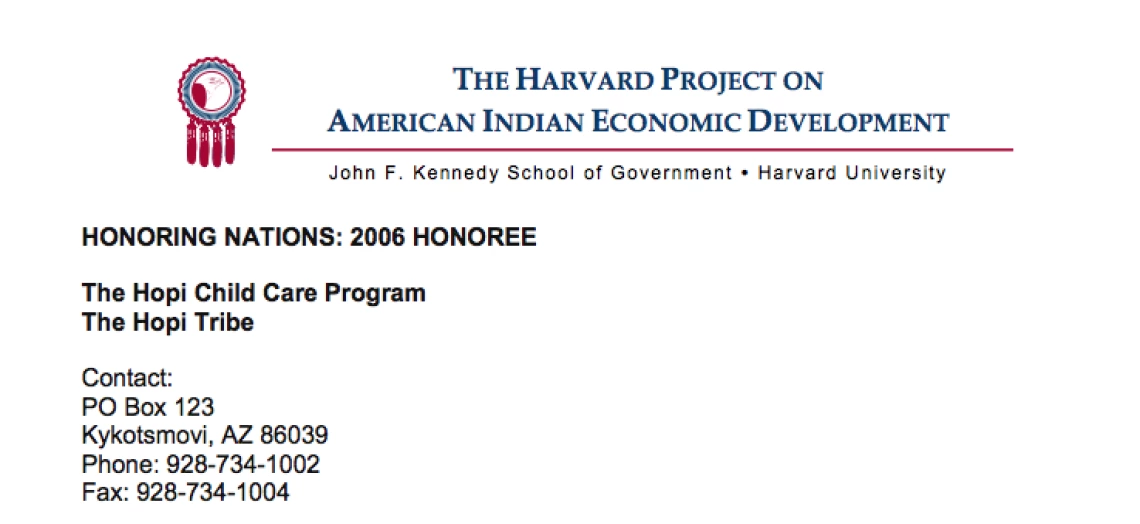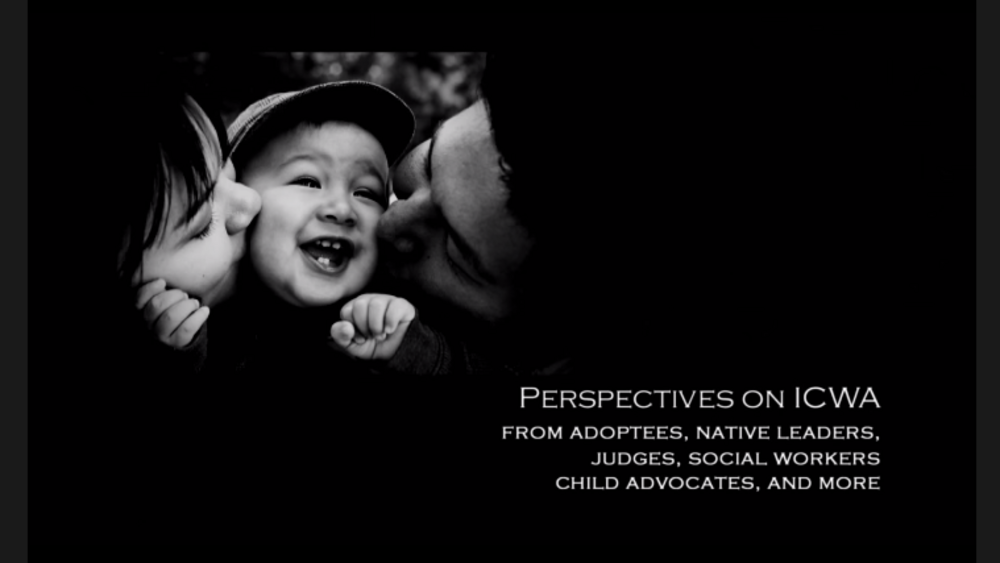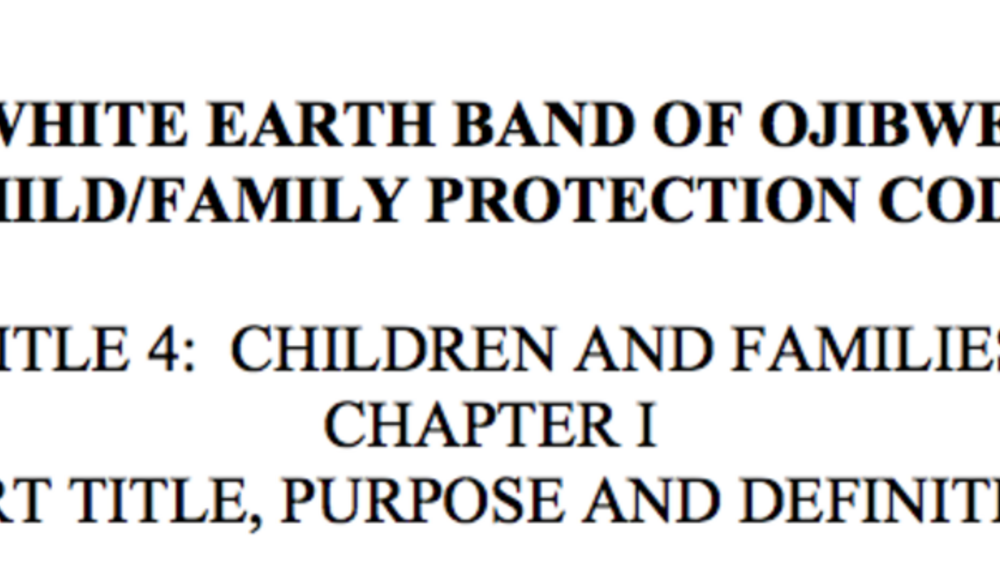The Hopi Child Care Program assists families in accessing quality care for children of parents pursuing education and those with work demands that keep them away from home. Understanding the importance of early childhood development coupled with the need for culturally appropriate care, Hopi citizens now have the ability to better provide for their families. The Program gives parents the security of knowing their children are safe through affordable and accessible channels. The Tribe asserts, "These children are our greatest resource. How they are treated as young children impacts the future of the Hopi Tribe."
Additional Information
"Hopi Child Care Program". Honoring Nations: 2006 Honoree. The Harvard Project on American Indian Economic Development, John F. Kennedy School of Government, Harvard University. Cambridge, Massachusetts. 2007. Report.



